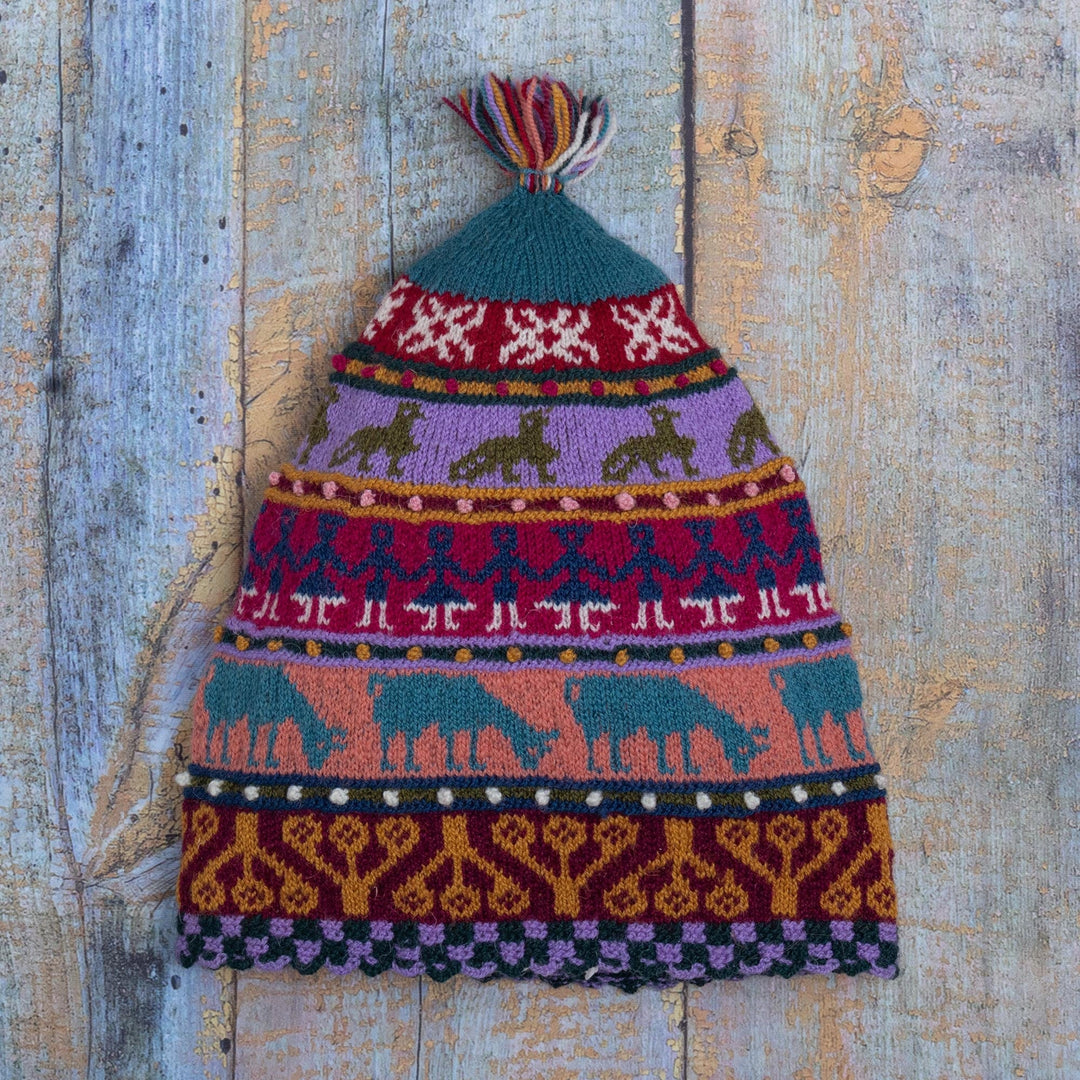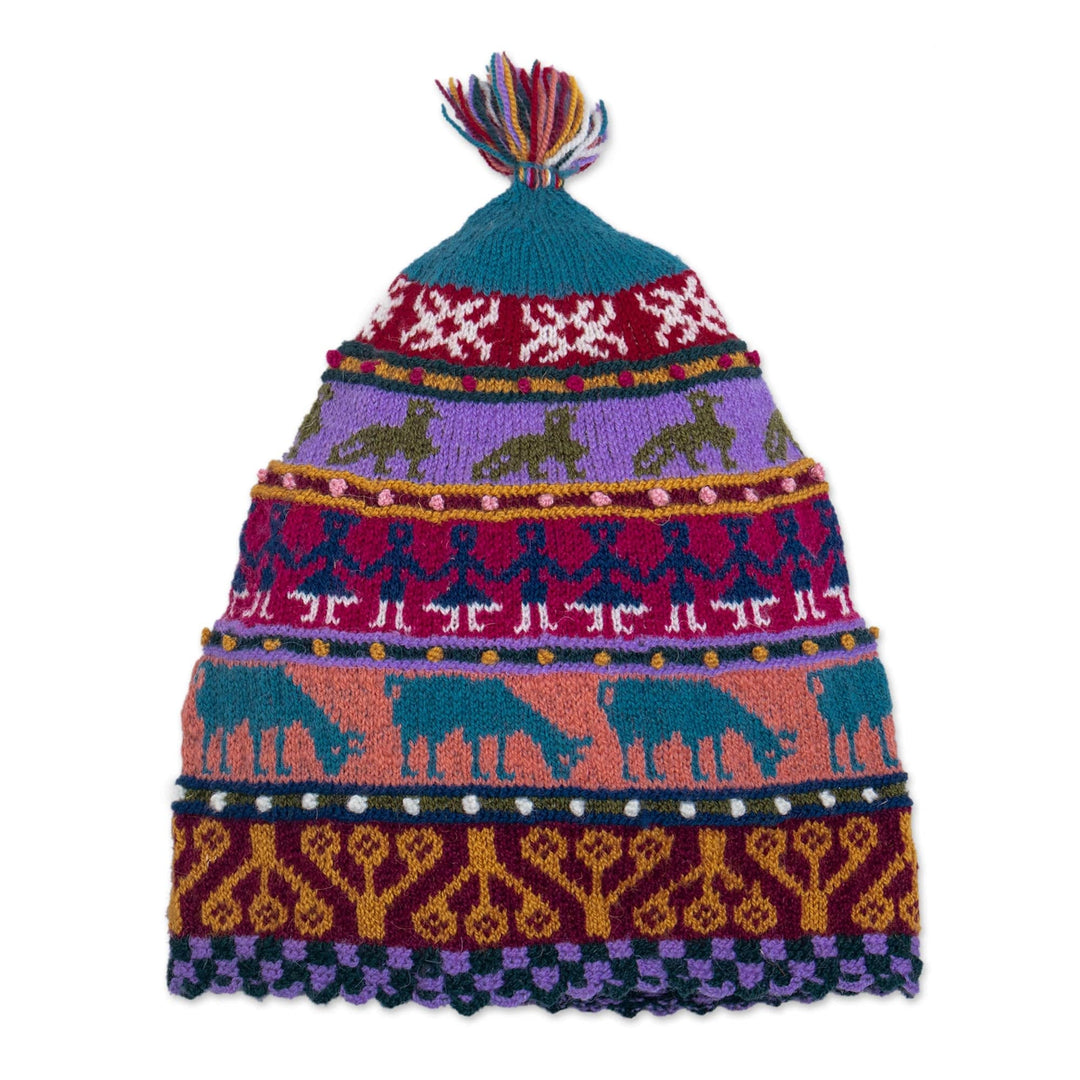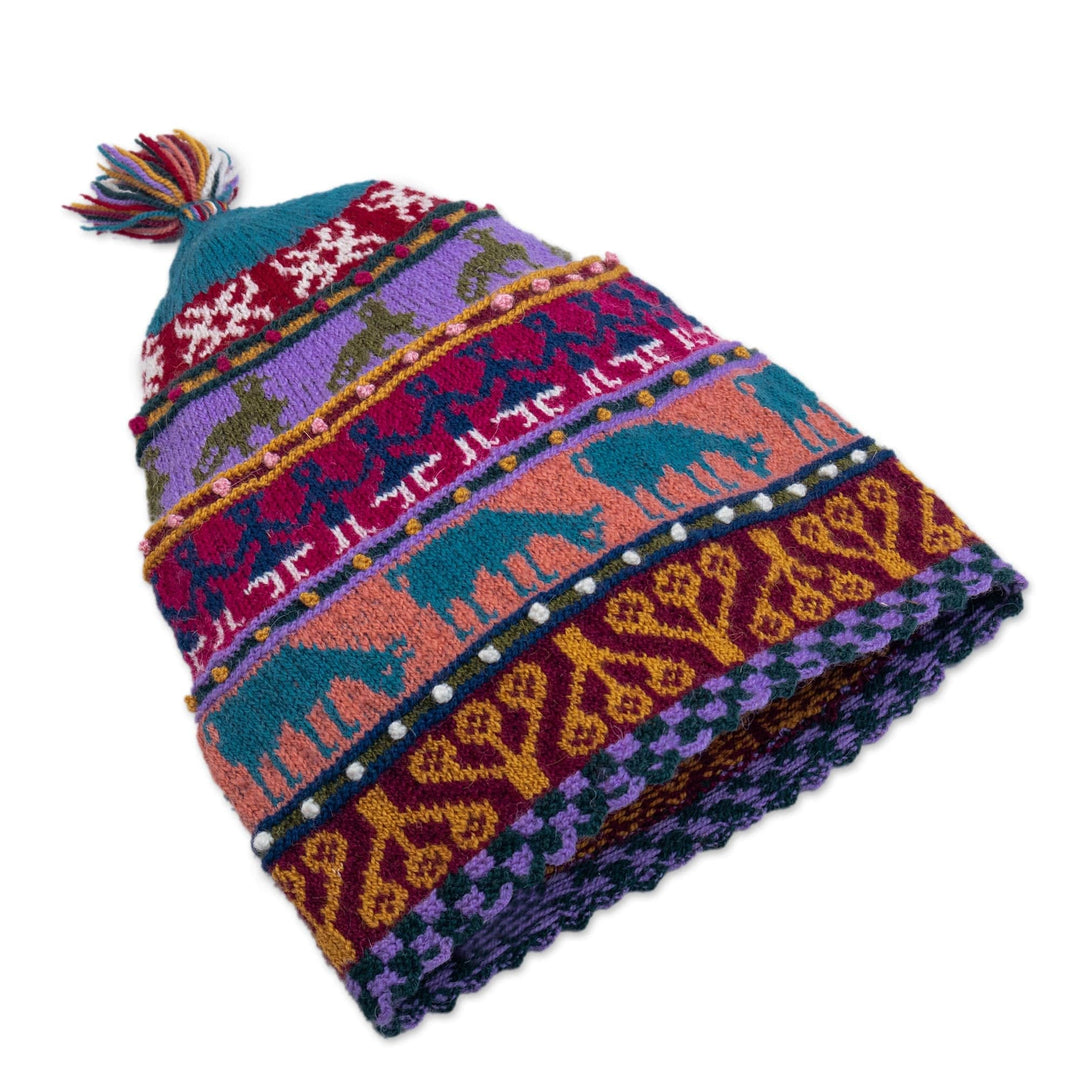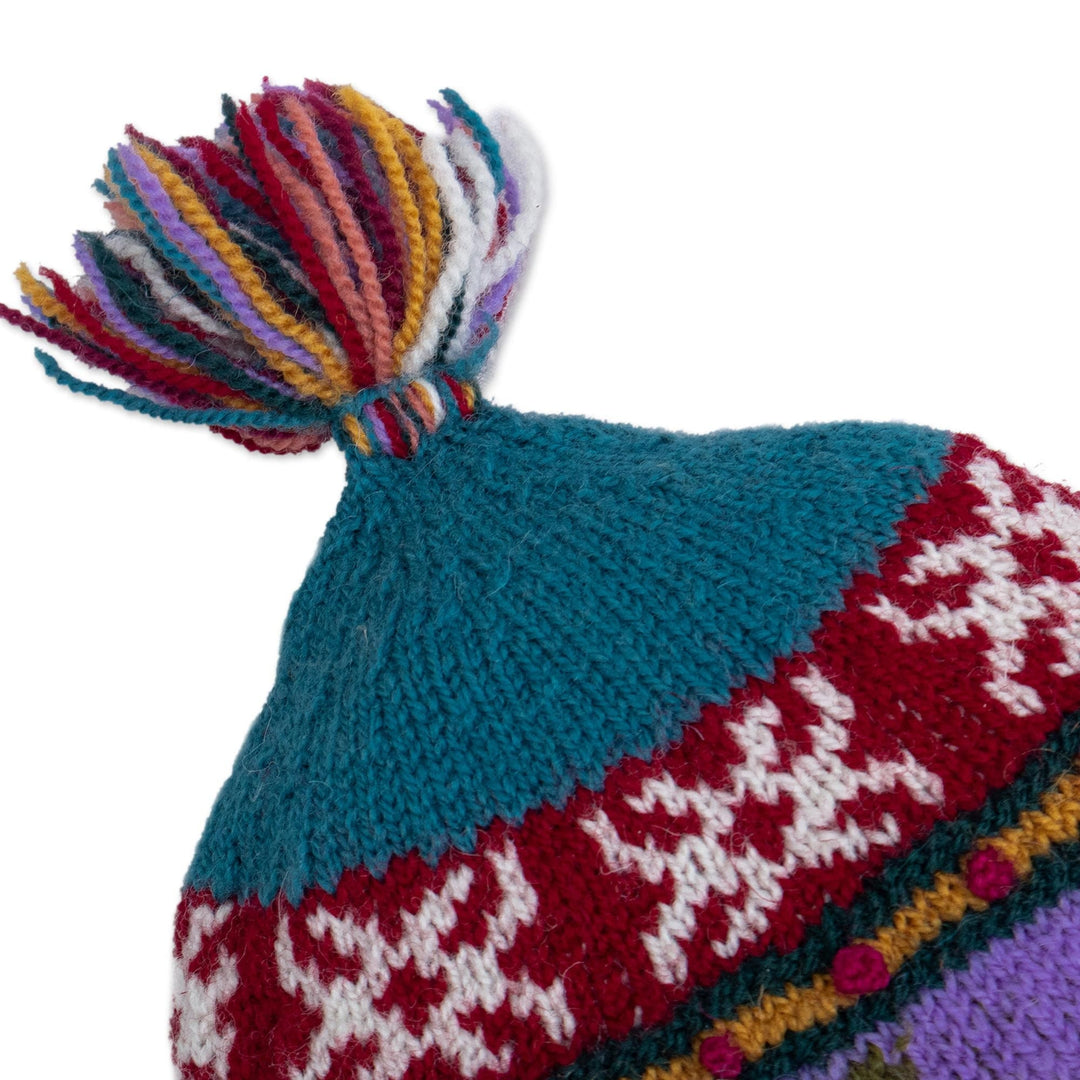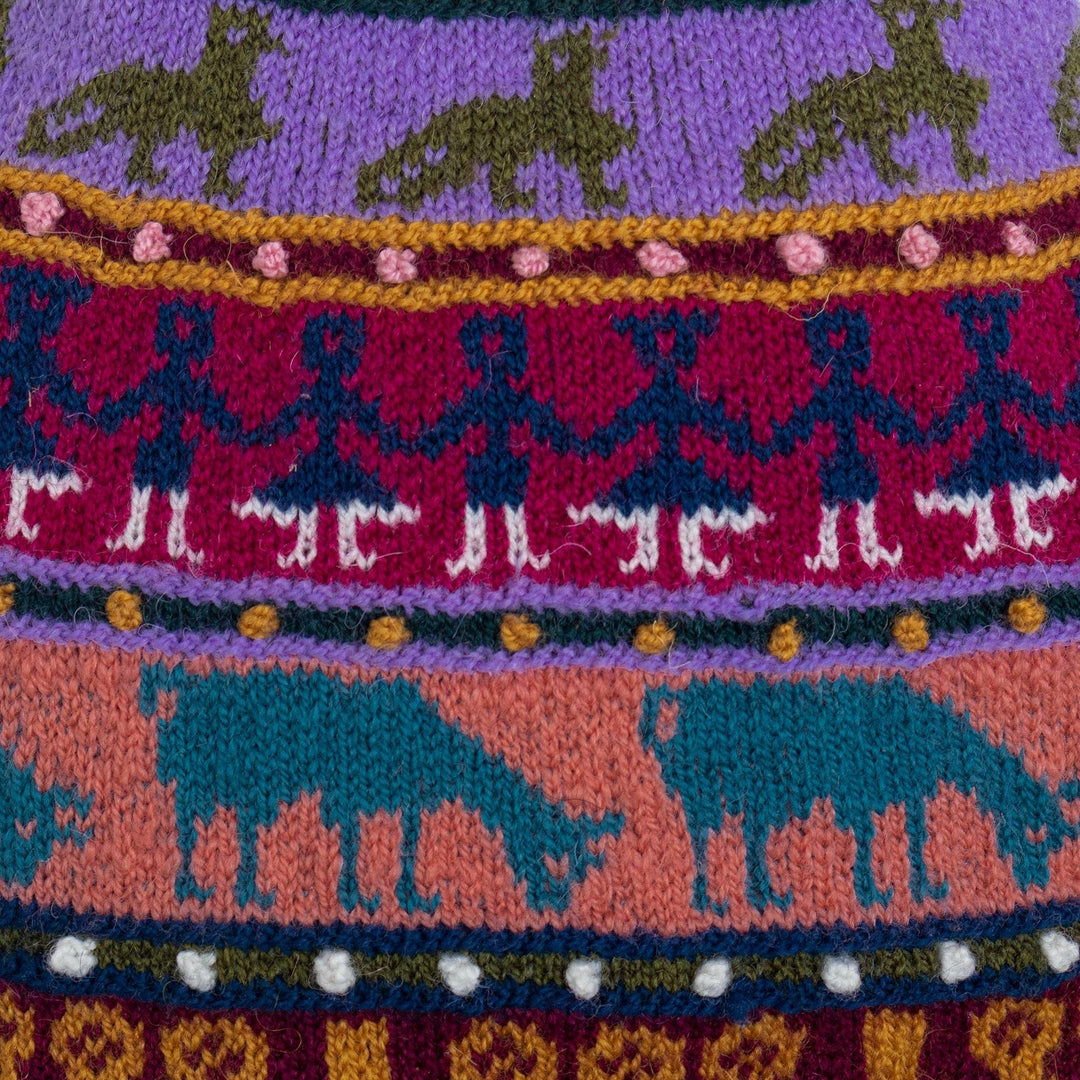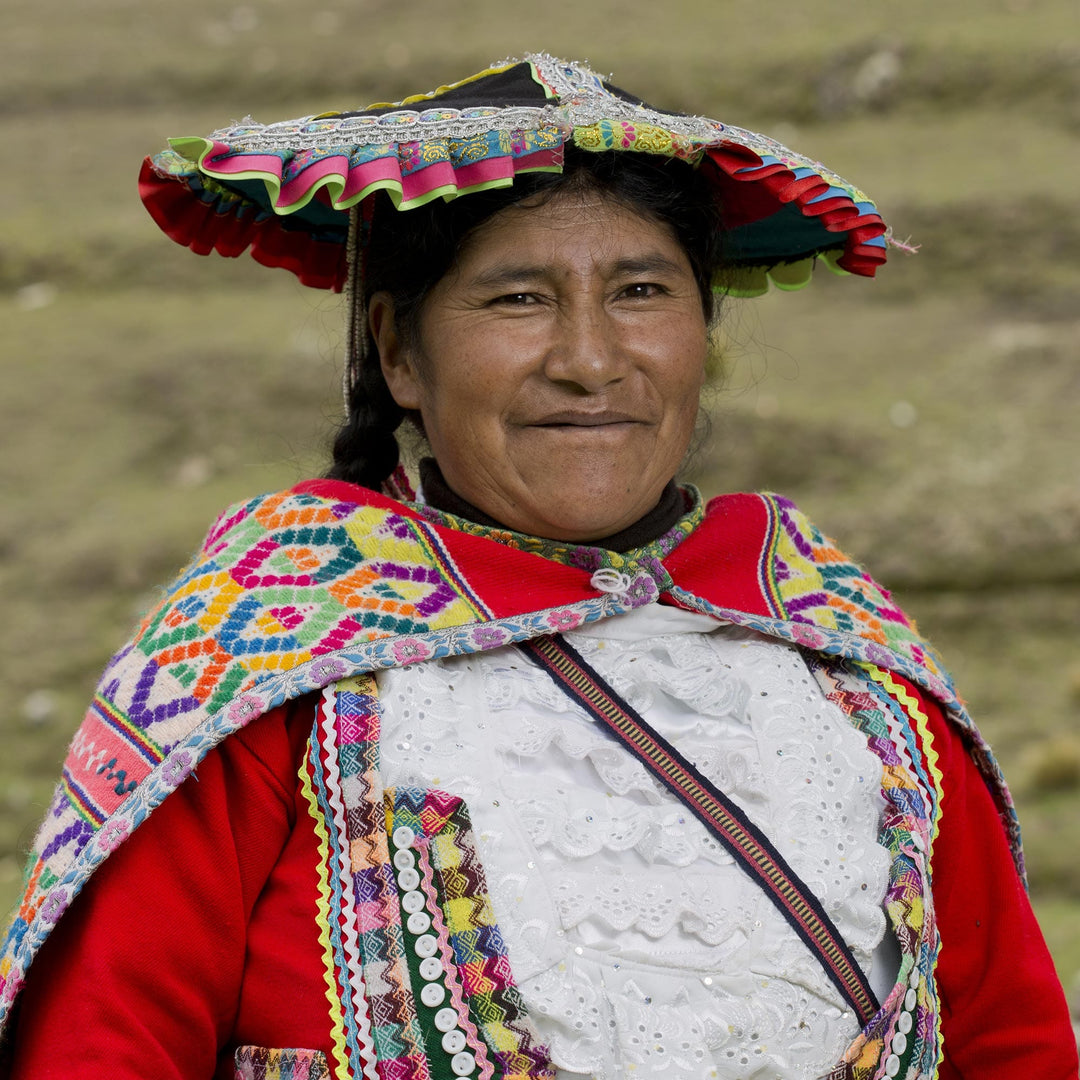

✓ Item added to cart
View Cart
Multicolored Hand Knit Wool Hat - Qanchi Dance
Learn more >
Sourced
Guarantee
Knit entirely by hand, this cozy hat will be a bright addition to your winter wardrobe. The artisans of Hilando Victoria craft the hat from pure wool yarns in cheerful colors, incorporating motifs inspired by the traditional Qanchi dance which pays homage to Pachamama, or Mother Earth.
- 100% wool
- 0.77 oz
- 20 inches Inner Circ. x 9.5 inches W x 9.5 inches H
THE STORY BEHIND THE PRODUCT
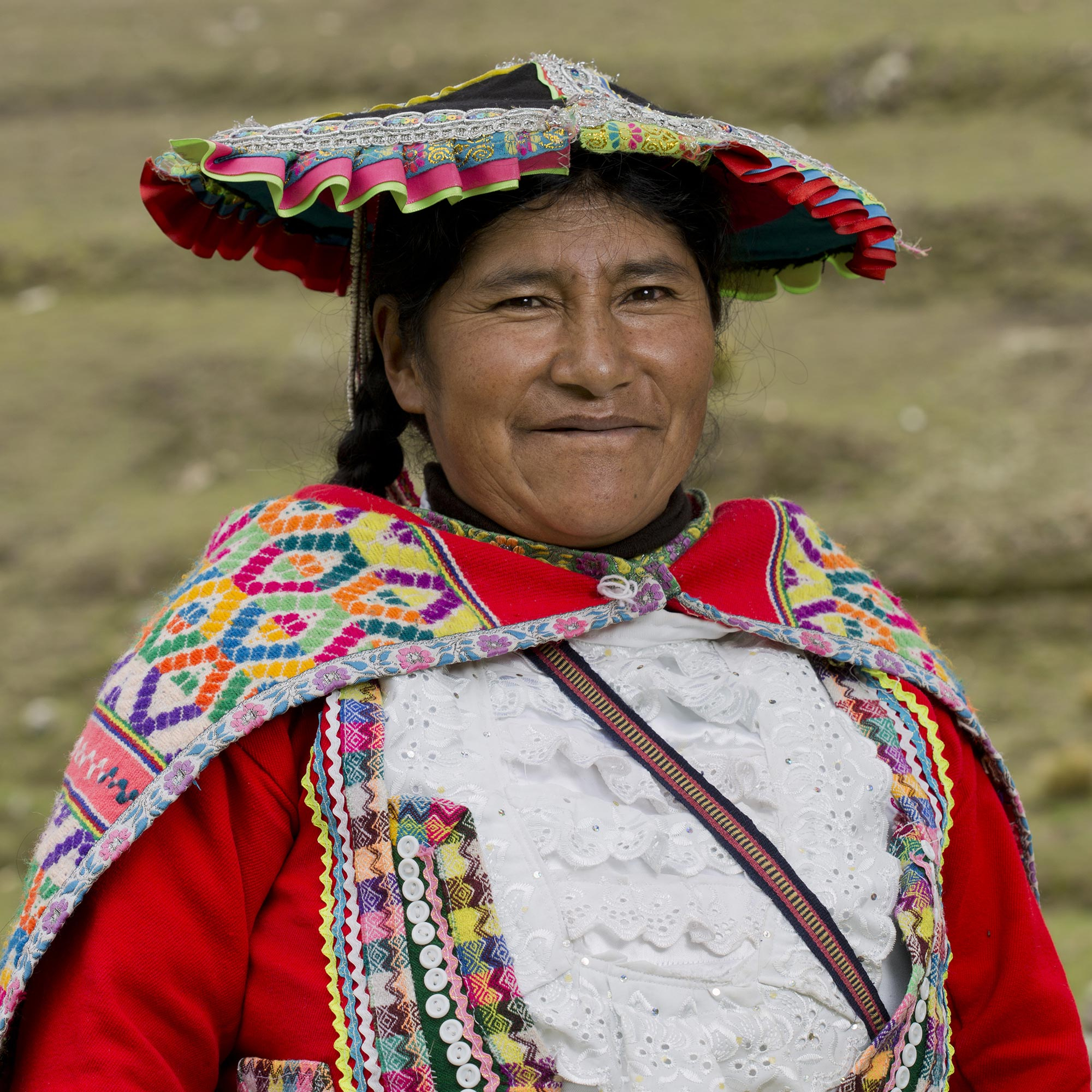
Artisan Organization: Hilando Victoria
Country: Peru
Victoria Quispe Mamani is the master weaver and founder of the Asociacion Hilando Victoria, which specializes in the most traditional techniques of ancestral and manual weaving in the use of backstrap looms. She is Quechua-speaking, a community leader, and a guardian of the textile culture of Canchis.
Victoria did not go to school and she learned everything she learned in the field. "I grew up in the Community of Osefina, in the heights of the District of Pitumarca, Canchis, Cusco, and I come from a family of alpaca farmers and ranchers. At 38 years old, I moved to the city of Sicuani about 2 hours from Cusco, where I now live with my family: I have 5 sons and 4 daughters. I cannot imagine my life without weaving, without shaping through my hands; it is a continuous learning experience. It is the pleasure of experimenting with new designs and techniques that are always more complex. Even when I am ill, my hands go on their own; they weave and weave."
All of her children weave and learned the art from their mother. All without exception grew up next to her, became artisans and teachers, and also do things as wonderful as their mother. Her eldest daughter is Octavia Rafaela and she is the voice of her mother, since she translates everything into her language, Quechua.
Her inspiration comes from the beautiful landscapes that surround the community. Victoria greatly enjoys not only the passion she feels for textile art and weaving, but also caring for and herding her sheep in the mountains. She loves spending time with her animals, which are sacred to her. She considers them family; they are part of her day-to-day life.
One of the celebrations that she enjoys the most is the meeting of her 9 children on her birthday, sharing food and enjoying life and health. She always instilled in her children that union and love should be their pillars for everything in life.
To assemble her loom, she seeks a free and quiet place where she can concentrate. There she drives the four stakes into the ground to begin work. She practices waist loom weaving, also called pampahuay. She works with alpaca and baby alpaca fiber, all 100% natural fibers. On the four-stake loom, it can take her three days or a week to make a chullo hat. Each piece is a different and unique work.
In the words of Octavia, her eldest daughter: "We must maintain the ancestral tradition. Our products are handcrafted, natural works. My mom learned it from her grandmother, and her grandmother learned from her mother. It is an art that we carry throughout our history. We need to highlight our tradition and craftsmanship more. My mother's dream has always been to reach people who value her work, not only for my mother or my brothers, but because my mother has an association that brings together around 15 people. We have created a website, thanks to the awards we have won in this art. That is how we support the community, and thanks to this many people continue to be inspired and think that there is still an opportunity."
Victoria leads the conservation of the ancestral knowledge of the loom in the province of Canchis; various awards received in the last decade attest to it. And, at the same time, she is curious and attentive to what is happening in the contemporary world. She fuses the different traditional techniques to develop new designs along with the pallay (iconographic motifs).
Since the pandemic began last year, business for artisans has dropped significantly. Most of the public who value the work of artisans, of what is done by hand, are foreigners. And today their presence is very restricted. Although there is support among artisan groups, it has not been enough. Due to COVID-19, many men and women have had to abandon crafts and return to work on the farm to survive. The association's plans to grow have been set back a lot.
Faced with this reality, Victoria was able to make a dream come true. It's called Hilando Victoria. Last year the project won funding from the Ministry of Foreign Trade and Tourism (Mincetur). It is a platform whose objective is not only to disseminate the work that she does, but also to generate income for of all the women in her association. Victoria's idea is that with the platform the artisans can resume their creative activity.
"It is a dream that my mother has had. Her dream has been to reach clients who value her work. This award is supporting us to create our virtual platform and reach them," says Octavia. "
